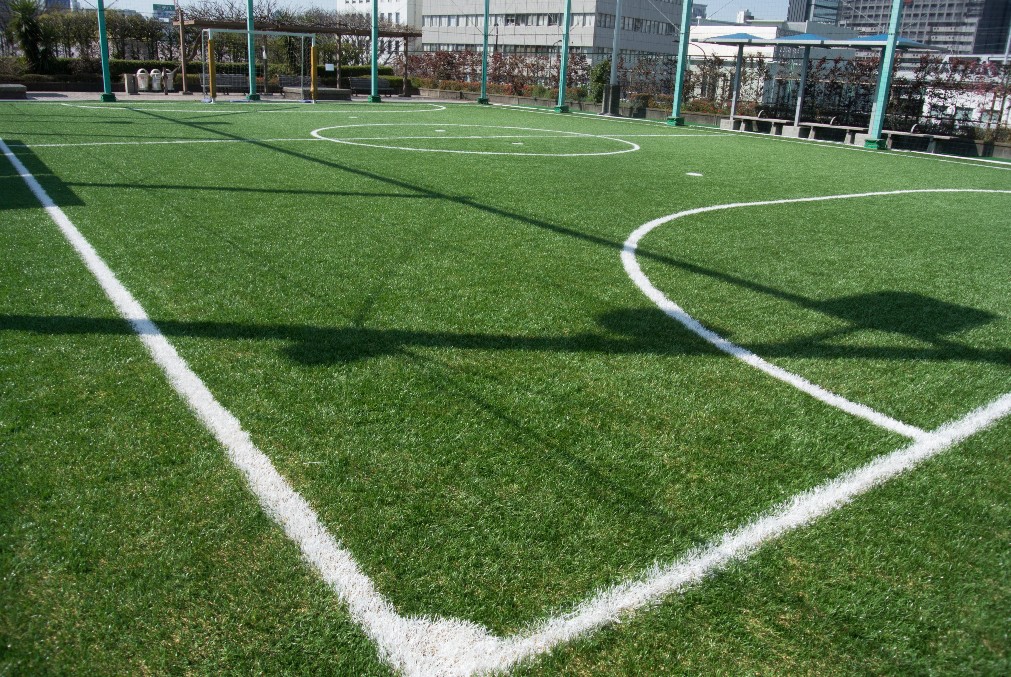1. Consistent Playing Surface:
- The uniformity of artificial turf, providing a consistent playing field.
- Minimizing variations in surface texture and ensuring fair competition.
2. Shock Absorption for Safety:
- The shock-absorbing properties of artificial turf, reducing the impact on joints and muscles.
- Lowering the risk of injuries compared to traditional surfaces.
3. Durability Under Pressure:
- The ability of artificial turf to withstand heavy usage without significant wear.
- Ideal for high-traffic sports fields, ensuring longevity and performance.
4. Weather-Resistant Play:
- All-weather usability, allowing athletes to train and compete in various conditions.
- Eliminating weather-related cancellations and disruptions to training schedules.
5. Faster Recovery and Reduced Fatigue:
- The softer surface of synthetic grass contributing to faster recovery after intense workouts.
- Reduced fatigue and muscle strain compared to harder traditional surfaces.
6. Precision and Ball Control:
- The consistent and smooth surface of artificial turf enhancing ball control.
- Ideal for sports that require precision, such as soccer, field hockey, or lacrosse.
7. Low Maintenance, High Performance:
- Minimal maintenance required, allowing athletes to focus on training and competition.
- No need for frequent watering, mowing, or other time-consuming tasks.
8. Customization for Sports-Specific Needs:
- Tailoring the artificial turf to meet the specific needs of different sports.
- Incorporating markings, logos, and designs for a professional and customized look.
9. Versatility in Training:
- Creating a reliable training space for athletes, whether for sprints, agility drills, or strength training.
- The adaptability of artificial turf for various training regimens.
10. Sustainability in Sports: – Reduced water usage compared to natural grass fields. – An eco-friendly choice that aligns with sustainable practices in sports.
Artificial turf installation offers numerous benefits for athletes, making it an ideal choice for sports fields. One of the key advantages is its durability and ability to withstand heavy foot traffic. Unlike natural grass, synthetic turf maintains its structure and resilience even after continuous use, providing a consistent playing surface for athletes. This consistency improves performance, as players can rely on even footing without worrying about uneven patches, mud, or grass damage. Additionally, artificial turf is designed to offer enhanced shock absorption, reducing the risk of injuries from falls or harsh impacts.
Another significant benefit is the low maintenance required for artificial turf, which allows for more frequent use without the need for regular upkeep like watering, mowing, or re-seeding. This is especially valuable for sports teams and athletic programs that need reliable access to fields throughout the year. Weather resilience is another factor, as artificial turf drains quickly and remains usable even after heavy rain, eliminating game delays due to poor field conditions. For athletes, this means more practice time and a consistent environment to hone their skills, leading to better overall performance.
Find out more from our other great reads!
